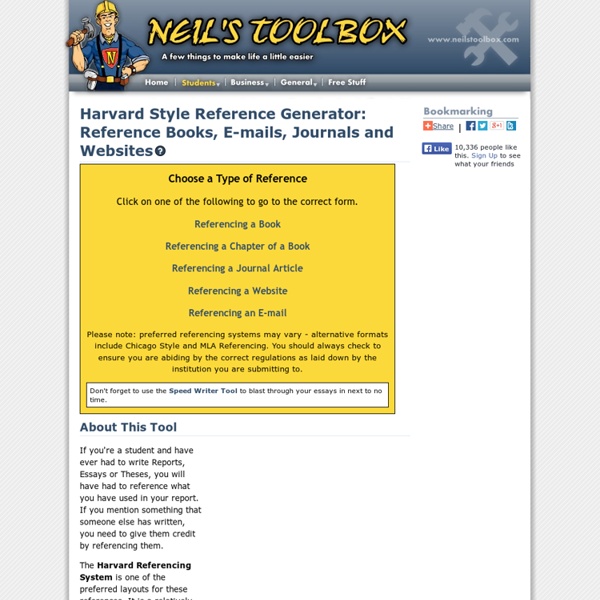Harvard Reference Generator Tool: Harvard/APA Referencing created for essays, reports and dissertations

Harvard Reference Generator | Referencing Tool
Starting a Sentence With "Hopefully" : Grammar Girl :: Quick and Dirty Tips
Grammar Girl here. Today's topic is whether it’s OK to start a sentence with the word hopefully. Paul from Long Island, NY, called the voice-mail line with this comment: I was wondering if maybe you could do a podcast devoted to the misuse of the word hopefully. It's an adverb, but nobody uses it that way. I'm probably going to make everyone crazy with this topic, because I think it should be OK to start a sentence with “hopefully,” but I'm still going to tell you not to do it. Hopefully Versus I Hope The problem Paul is talking about is when people start a sentence with “hopefully” instead of “I hope.” If you've ever heard me give a radio interview, you've probably heard me self-correct this problem. Hopefully...we hope. I don't mean to pick on the speaker here—as I said, I do this a lot. Hopefully [Oh no! Here's the deal: the traditional use of hopefully, which goes back to at least the 1600s, is to mean “in a hopeful manner,” as in Squiggly looked hopefully at the box of chocolates.
Essay terms explained
For a printer-friendly PDF version of this guide, click here To write a good essay, you firstly need to have a clear understanding of what the essay question is asking you to do. Looking at the essay question in close detail will help you to identify the topic and ‘directive words’ (Dhann, 2001), which instruct you how to answer the question. This glossary provides definitions of some of the more typical words that you may come across in an essay question. You are advised to use this glossary in conjunction with the following Study Guides: Writing essays and Thought mapping written by Student Learning Development. References Dhann, S., (2001) How to ... The following resources have also been consulted in writing this guide: Johnson, R., (1996) Essay instruction terms. Student Study Support Unit Canterbury Christchurch College (no date) Common terms in essay questions. Taylor, A.M. and Turner, J., (2004) Key words used in examination questions and essay titles.
SLASA School Library Association of SA
Lumosity
Related:
Related:



